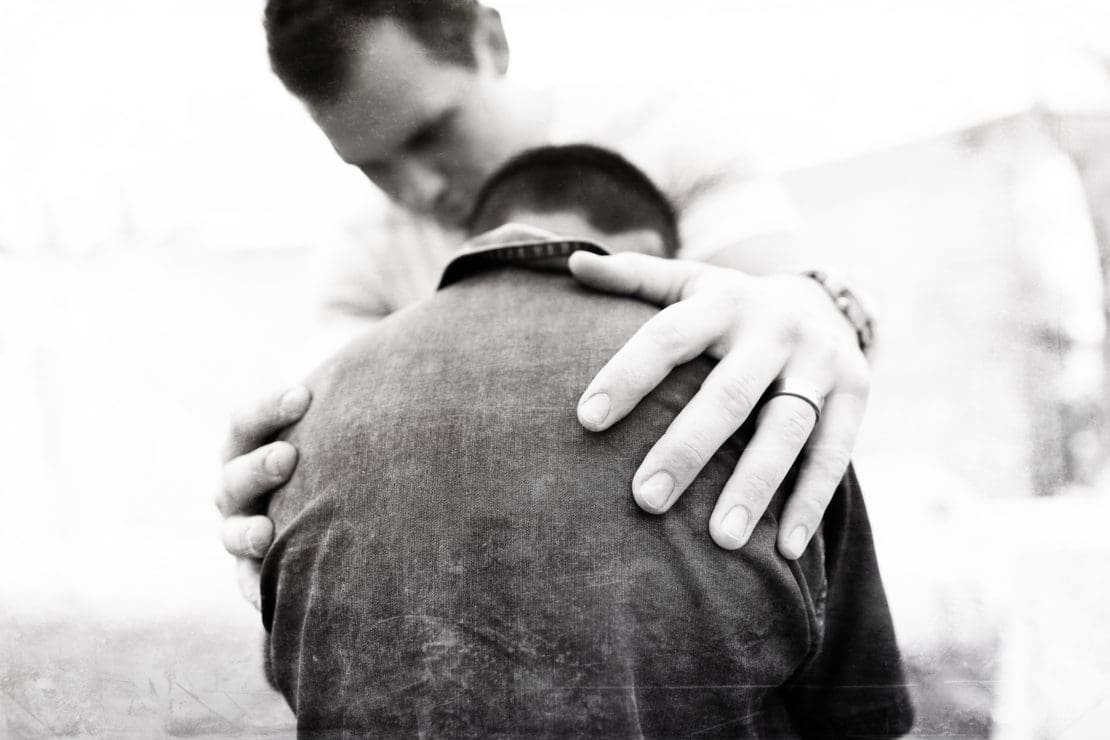Pride, guilt, and life unashamed
Explaining the Church’s teaching on same-sex desires in today’s world isn’t easy. We feel hesitation, embarrassment…shame. Living the Church’s teaching on same sex desires poses its own challenges. Internal confusion, hiding…shame. June’s Pride Month offers what may seem to be a compelling alternative for many. Why not simply reject a “repressive” Christian sexual ethic? Why not shrug off shame once and for all?
Before we gather our rhetorical ammunition in defense, perhaps we ought to address an underlying question. Does the Church’s teaching on homosexual acts require a believer to live in shame?
Objective Guilt & Subjective Shame
“Guilt” and “shame” are often used interchangeably, but they aren’t the same thing. Guilt relates to specific actions. The Catholic Dictionary defines it as “a condition of person who has done moral wrong.” With guilt, there is an awareness of having violated an objective standard. This can be healthy, motivating us to right the wrong, to repent.
Shame, however, is more subjective. I recently heard it explained quickly and well by Fr. Mike Schmitz. Shame is an awareness of having failed in someone else’s eyes. The perception of “failure” could be either true or false.
In Man and Woman He Created Them, St. John Paul II closely connects shame to the gaze of another. “In the experience of shame the human being experienced fear in the face of the ‘second I’” (TOB 12.1). How does this fear manifest today? We see fear of misunderstanding, fear of use, fear of judgement, fear of suffering, fear of not “measuring up.” St. John Paul II adds that relational shame has deeper meaning. “This is substantially fear for one’s own ‘I,’” he writes. In other words, when this is exposed I will be at risk. He see’s this most poignantly in Genesis 3, when the guilt of violating God’s command leads to shame and hiding. St. John Paul II later adds, “shame is immanent … it creates a fundamental disquiet in the whole of human existence” (28.3). Though shame is related to the gaze of another, it settles in us and can effect our self-perception.
Secular psychologist and shame researcher Brene Brown echoes this sense of shame – of relational “failure” settling into immanent self-understanding. She writes, “I define shame as the intensely painful feeling or experience of believing that we are flawed and therefore unworthy of love and belonging – something we’ve experienced, done, or failed to do makes us unworthy of connection.”
Same Sex Attraction: Cause for Guilt?
The Catholic Church is incredibly nuanced when it comes to the moral life. She distinguishes between inclination and action, between the stirring of the passions and the decision of the will. In the Catechism’s section on the passions, we find things like:
- “The passions are natural components of the human psyche” (CCC 1764).
- “In themselves passions are neither good or evil” (CCC 1767).
- “Strong feelings are not decisive for the morality or the holiness of persons; they are simply the inexhaustible reservoir of images and affections in which the moral life is expressed” (CCC 1768).
We have a choice with every passion that presents itself to us. It is this process that has moral content. “Insofar as they [the passions] engage reason and will, there is moral good or evil in them” (CCC 1773). As the result of the fall, some passions incline us towards what is morally evil. However, all of our “emotions and feelings can be taken up into the virtues or perverted by the vices” (CCC 1768).
Attraction lies within the realm of the passions. As the USCCB overtly states, “Homosexual inclination is not itself a sin.” To simply experience a desire – before reason or will is engaged – is not to violate a moral standard. There is no cause for guilt. Every person experiencing any desire – properly oriented towards the good or disordered towards an improper end – has a choice of what to do with it. The choice, by the grace of God, could very well be for virtue!
So if there is no cause for guilt, how does one account for the sometimes crippling negative feelings experienced by persons experiencing same sex desires?
Life Unashamed
Shame is, of course, a universal human experience. It is by no means limited to persons experiencing same sex desires. However, we see the tension of shame present in a unique way.
Across catechetical explanations, individual parish employees, or news articles, the nuances of the Church’s teaching are, unfortunately, not always present. Some speak or write negatively of “homosexuality” in general, without much further specificity or doctrinal citation. This can easily come off as a condemnation for inclination, rather than a critique of acts. For a person experiencing same sex desires – especially in isolation or without authentic catechesis themselves – this can deepen a sense of unworthiness.
For people who continue to experience same sex desire throughout their life – in the midst of consistent pursuit of virtue – there can be a sense of “failure.” “I’ve done all the ‘right’ things and I still experience this! Am I failure in God’s eyes? Will other people think less of me because I haven’t ‘changed’?”
The truth is a beautiful one. God is not ashamed of you.Experiencing same sex desires does not make you unworthy of God’s love or of belonging to His Church. It does not make you unworthy of deep, intimate connection to the Body of Christ. You are are a daughter or son, safe in the gaze of your loving Heavenly Father.
“I Am Not Ashamed of the Gospel”
These words of St. Paul to the church in Rome can serve as an inspiration to us today. The Church’s teaching on sexuality doesn’t always inspire confident proclamation, whatever your attractions. We may not label it as “shame,” but discomfort and embarrassment can hold us back from sharing the beauty of the Christian anthropology and sexual ethic. We anticipate the failure in the other’s eyes. How will we be received? With dislike, distrust, or outright hostility? If we’re received poorly for trying to explain what we believe, perhaps there’s something wrong with us, some flaw that is exposed with the other person’s disagreement.
If the door of opportunity opens for us to share the Church’s teaching, we should not be ashamed to walk through it. We’re called to a confident proclamation of the good, the truth, and the beautiful! St. Paul’s bold faith is an encouragement to us all.
We should also be wary of an opposite problem. We sometimes see people who are unconcerned about the other’s response; so unconcerned they neglect to consider the other’s capacity for shame. When we are in dialogue with another person, we may not know their story. We don’t know their possible parental rejection or history of bullying. We don’t know their complicated relationship with faith and God. Even the most staunchly oppositional person has wounds in their past. We should remember the Church’s command to “respect, compassion, and sensitivity” in our delivery (CCC 2358).
I once heard a catechist speak incredibly bluntly about male same-sex acts to a room full of retreatants. It was jarring and out of place with the flow of the larger talk on marital sexuality. I knew that several men in the room experienced same sex attraction. If we’re excessively harsh in our delivery, what are we unintentionally exposing to shame?
We live in a culture that too often politicizes before it personalizes, perhaps this month more than others. The fullness of the Gospel includes the intrinsic dignity of each human person. Our proclamation should reflect both the truth of sexual morality and the deep sacredness of every human person. We must receive people in love and accompany in truth. All of us – whether explaining the Church’s teaching or integrating it into your own life – share in the same invitation before God and others – life unashamed.
Anna Carter lives and works in Milwaukee, WI. Since graduating from the Franciscan University of Steubenville, Anna has worked for NET Ministries and in local catechetical ministry with youth and young adults. Anna is the Co-Founder of Eden Invitation, an evangelistic outreach to millennial Catholics experiencing same sex attraction.


